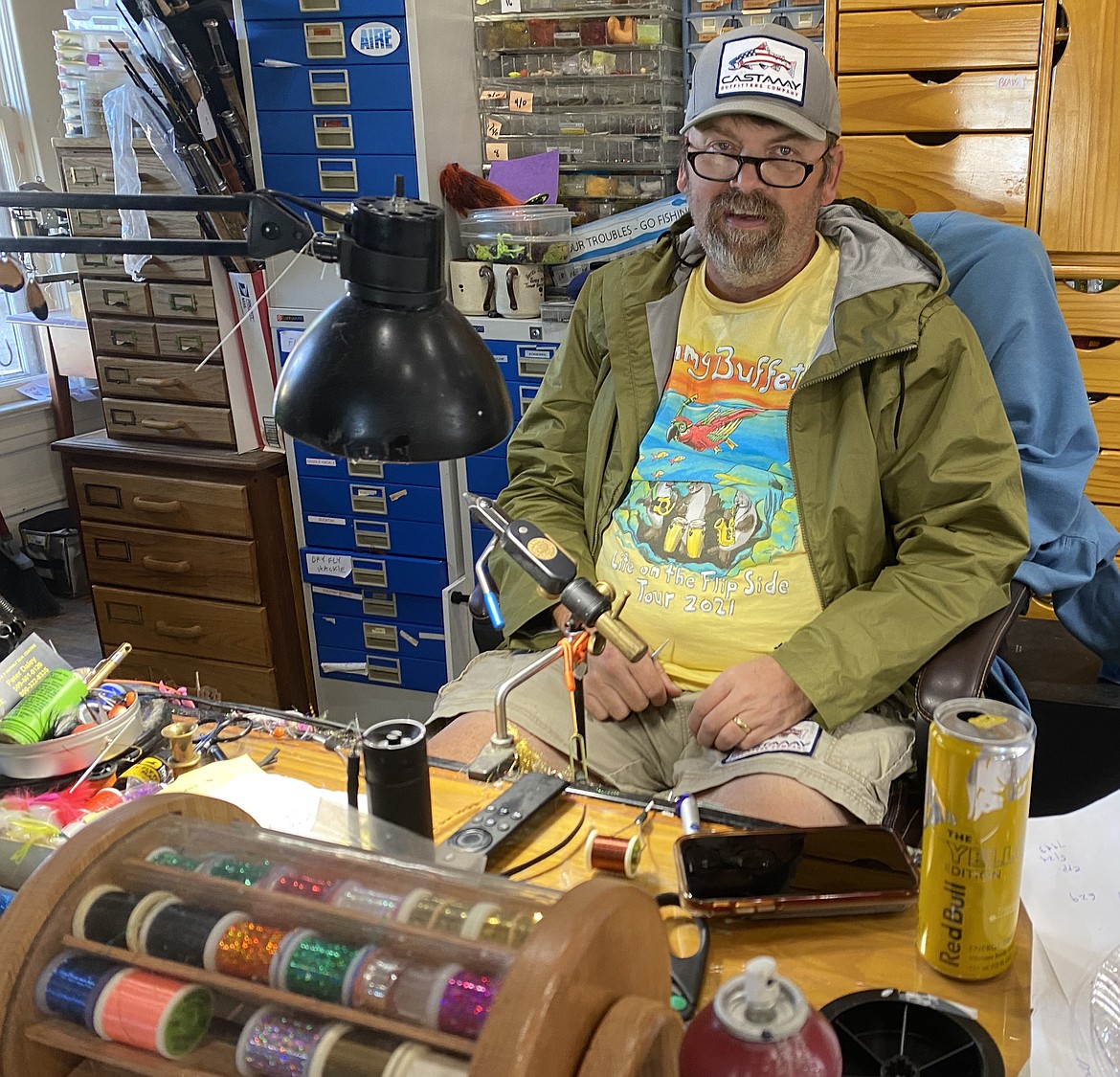Fly-tying phenom
COEUR d’ALENE — Surrounded by floor-to-ceiling drawers of materials and stacks of brightly colored thread, fly fisherman Joe Roope speaks easily but with authority about his favorite sport.
Roope, owner of Castaway Fly Fishing Shop, got his first fly-tying gig at 11 years old. Hired by Orvis, Roope spent several winters tying flies by the gross, which is 144 flies per unit. Producing about 15 gross per pattern, he would work on five or six patterns each winter.
“It was something that I liked to do,” he said.
With over 250 patterns memorized, Roope’s knowledge is actually much broader.
“It’s probably tens of thousands of patterns that I’ve tied,” Roope said. Those 250 are just the foundation.
“There were those original patterns, and then it’s like trees that go off from there,” Roope said. “If you took a snapshot of my boxes right now and you took a snapshot of my boxes 30 years ago, there would be some patterns that you would find the same in there and others that have morphed into something different.”
Now 54, Roope opened his first fly shop at the age of 13, with the help of his father, Joe Roope Sr. Little Dutchman Flies was in operation on Fruitland Lane through Roope’s Coeur d’Alene High School years.
That expanded to outfitting, and in addition to his Coeur d’Alene location, Roope owns Castaway Outfitters in Enaville, established in 1981.
Weather patterns change and fish behavior varies from season to season, which makes a knowledgeable guide more a necessity than a luxury, he said.
Fly-fishing uses a hand-made lure created on a hook that's held within a vise attached to a table. Using a variety of materials like beads, thread, tinsel, feathers and fur, intricate patterns are created with the goal of “mimicking something that is in the (fish) diet.”
Whether it's a land-borne or aquatic insect, flies are designed to duplicate the morsels desirable to fish in the local area — something like a caddis fly, for example.
“A great-big bug," Roope said. "The trout love them.”
Fly fishing was originally a sport enjoyed by European feudal land owners and was later considered a subsistence activity, Roope said. Over the years it's developed into a social sport widely enjoyed by all ages.
“It has turned into a part of the fabric of Coeur d’Alene,” Roope said.
A legend in the local fly-fishing scene, Roope used to take Duane and Lola Hagadone on guided expeditions.
“I’d be like the caddy,” Roope said. “We would lay up the shots and call the yardage.”
Roope enjoys helping people get the good “endorphins in their brains” that come from fishing.
“They have a successful experience fishing and they keep doing it,” he said. “You slowly get into different environments and experiences. It’s something positive.”
When Roope got started, the local fishermen were all World War II and Korean War vets. Now it's grown to include the YouTube generation, he said.
“They all approach it a little bit differently,” Roope said. The exposure on YouTube has been a good thing, though occasionally folks come in thinking they already know everything, he added.
The '90s saw a postage stamp featuring a Royal Wulff dry fly, which spurred on a new generation of fly-fishing popularity. The 1992 film "A River Runs Through It" also changed the public image of fly fishing, Roope said.
Now the shop sells more flies than Roope can personally tie. He has several tiers and expedition guides working for him. And he's discovered he enjoys fly tying with more variety and smaller quantities than in his earlier years.
“You know, my office is a really, really cool office when I’m guiding,” he said. “But it all revolves around the fly, because the fly is the thing that makes the fish make the mistake.”
Castaway Fly Fishing Shop: 1114 N. 4th St., Coeur d'Alene
Info: castawayflyfishingshop.com

